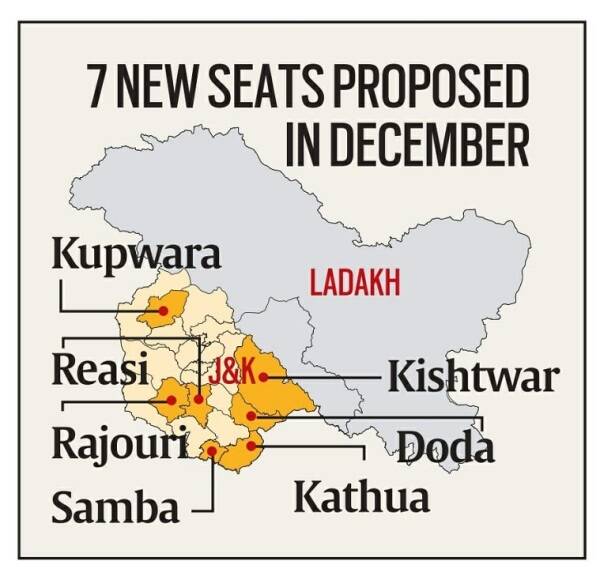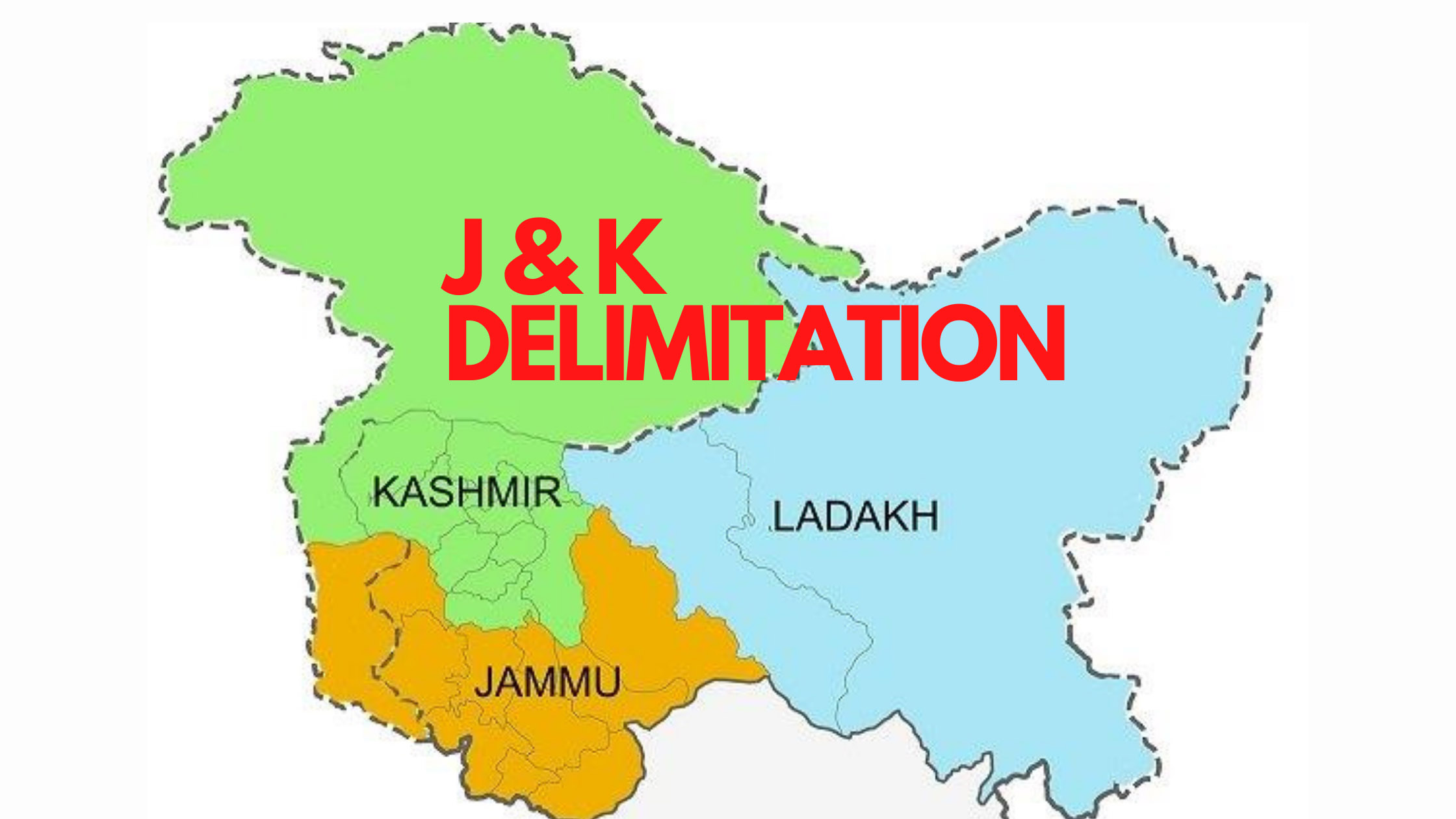The Delimitation Commission, while finalising its decision for the Union Territory of Jammu and Kashmir, proposed seven more constituencies — six for Jammu and one for Kashmir — bringing the total number of seats in the UT to 90 from 83 before. The Jammu Division will gain 43 seats, up from 37 previously, while the Kashmir Valley will get 47 seats, up from 46 previously.

Three other important takeaways from the order of the delimitation panel, chaired by retired Supreme Court judge Ranjana Prakash Desai, are: i) reorganisation of the Parliamentary constituencies such that the five Lok Sabha seats now are made up of exactly 18 Assembly constituencies each, taking the total number to 90, ii) reservation of nine Assembly seats for Scheduled Tribes – six in Jammu and three in Kashmir, and iii) removal of the regional distinction between Jammu and Kashmir and treating it as one, as is reflected in the combining of Anantnag region in Kashmir with Rajouri and Poonch in Jammu to carve out Anantnag-Rajouri as a Parliamentary constituency.
The order of the Delimitation Commission was published in the Indian Gazette on Thursday. It was signed by two other ex-officio members, Chief Election Commissioner Sushil Chandra and Chief Electoral Officer of Jammu and Kashmir KK Sharma, in addition to Justice Desai. The Commission also worked with five Associate Members chosen by the Speaker of the Lok Sabha from J&K. Farooq Abdullah, Mohammad Akbar Lone, and Hasnain Masoodi of the National Conference, Union Minister of State in the Prime Minister’s Office Jitendra Singh, and BJP MP Jugal Kishore Sharma.
The panel’s rulings are politically significant, and major parties in the Valley have criticised them. The Jammu area has more seats than the Kashmir Valley in terms of population, and this, according to these parties, breaches the population requirement. According to the 2011 census, Jammu, which has a population of 44 percent, will receive 48 percent of the seats, while Kashmir, which has a population of 56 percent, will receive only 52 percent. Previously, the Kashmir area held 55.4 percent of seats, while Jammu had 44.5 percent.
Because the Valley’s electorate will be split between many claimants – National Conference, PDP, Peoples’ Conference, Congress, and Left – if the BJP manages a grand show in the Jammu region like it did in the 2014 Assembly elections, it could well be the single largest party in the Union Territory, according to political analysts.
Furthermore, the new Assembly seats in the Jammu region have primarily been carved out in Hindu-dominated districts; the lone seat in the Valley has been carved out in border Kupwara district, a bastion of Sajad Gani Lone’s Peoples’ Conference, which has previously associated with the BJP.
The panel further advised that the Union Territory’s Legislative Assembly include at least two members from the Kashmiri migrant population, one of whom be a woman, with voting rights equal to nominated members, as in the Puducherry Assembly. It also urged that persons displaced from Pakistan-occupied Jammu and Kashmir be represented. Political commentators believe that this will also benefit the ruling BJP.
Political experts believe that the decision to relocate the border Poonch district and most of the bordering Rajouri district from the Jammu Lok Sabha seat to the Anantnag parliamentary constituency will boost the BJP. In practically every Lok Sabha election, BJP candidates trailed in Poonch and Rajouri, but made up for it in Nowshera and Sunderbani tehsils, as well as Jammu and Samba districts, which are mostly Hindu.
According to political groups in the Valley, adding Poonch and Rajouri to the Anantnag Lok Sabha seat not only spares the BJP from historically anti-BJP votes, but also disempowers ethnic Kashmiri Muslims in Anantnag. With the majority of ST seats lying in Rajouri and Poonch districts, the Anantnag parliamentary seat is likely to be proclaimed a ST constituency, with voters in the Jammu area (Rajouri and Poonch) deciding its fate. The Jammu parliamentary seat would have had to be proclaimed a ST seat under the current arrangement.
According to the delimitation order, the names of Assembly seats have been altered in response to local members’ requests. Tangmarg has been renamed Gulmarg, Zoonimar has been renamed Zaidibal, Sonwar has been renamed Lal Chowk, Padder has been renamed Padder-Nagseni, Kathua North has been renamed Jasrota, Kathua South has been renamed Kathua, Khour has been renamed Chhamb, Mahore has been renamed Gulab
